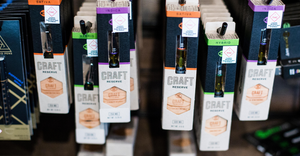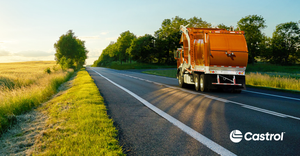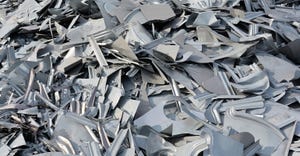J. Stephan Banchero III’s entrepreneurial spirit and knack for relationship-building have earned him a senior position at his company and recognition as one of Waste360’s 40 Under 40 award recipients.
Cedar Grove is a family-owned business that dates back to 1938. The company serves Washington’s Puget Sound region and composts more than 350,000 tons of residential and commercial yard and food waste annually.
J. Stephan Banchero III is vice president of Cedar Grove Composting and Cedar Grove Organics Recycling, which hauls food waste and organic material from companies that include Boeing, Amazon, Safeco Field (home of the Seattle Mariners) and CenturyLink Field (home of the Seattle Seahawks and Seattle Sounders FC), just to name a few. He was also active in the creation of the Green Sports Alliance.
Banchero’s entrepreneurial spirit and knack for relationship-building have earned him a senior position in the company and recognition as one of Waste360’s 40 Under 40 award recipients.
“Coming from a long line of entrepreneurs, [Stephan] is unwavering in his commitment to innovating new business models, new lines of business, new relationships and partnerships and new ways of doing things,” says Karen Dawson, Cedar Grove’s director of marketing & community relations.
In an interview with Waste360, Banchero talks about expanding Cedar Grove’s opportunities in the field of organics and partnering with the region’s top companies.
Waste360: What are your major areas of responsibility?
 Stephan Banchero III: I am vice president at Cedar Grove. My responsibilities cover all ends of the business such as working on the processing end in our facilities. I am responsible for our organic waste collection business. We do some recycling collection as well.
Stephan Banchero III: I am vice president at Cedar Grove. My responsibilities cover all ends of the business such as working on the processing end in our facilities. I am responsible for our organic waste collection business. We do some recycling collection as well.
I am always working on new ventures and additional projects to further enhance our business, and managing the sale of our product. We are a family business so pretty much whatever needs attention, it needs attention.
Waste360: What are some of the early experiences that prepared you to enter the business?
Stephan Banchero III: When I was in high school, I was working out of the garbage shop and I got to know a lot of the guys on the operations end and drivers and mechanics. Then, when we sold the garbage company, I worked out of the compost facility and had a mentor on the equipment end that got me into all aspects [of the work]. I did that for a few years and was put in different positions to learn how to do the operating roles. I think that was a real good foundation for moving into the office and understanding what it takes to get a project done.
We have a lot of long-time employees at our company who have been here anywhere from 30 to 40 to 50 years, and they have always been extremely welcoming of me as well as my sisters. Graduating from the equipment end and coming into the office, I had my dad and other long-term employees take me under their wing and give me the opportunity to grow based on the effort that I put in. It’s been rewarding to elevate myself from where I was when I first started to the position that I’m currently in, and I feel like it’s been with the support of the company as a whole.
Waste360: How does your organics recycling division work and why did Cedar Grove decide to go in that direction?
Stephan Banchero III: I think it came from a demand in the region in the early 2000s to divert more from the landfill and find a home for probably what was the largest component of what’s going into the landfill, which was food waste.
At that time we approached some of our partners and told them we had invested in the composting technology to process it. When we didn’t see that component of the commercial waste stream start to come out we figured that with 50 years of history in the garbage business we were fully capable of creating our own business with our trucks, containers and service.
It was a door-to-door, one-to-one partnership. It took a little while to get started, but once we were able to invest our time and work with some of the more prominent businesses in the area and prove that we could make this a success, the growth model drastically increased from that point on. We were able to send the message that this was the right thing to do.
Waste360: What changes or opportunities would you like to see in the industry in the next few years?
Stephan Banchero III: I think the concept of increased recycling and composting is pretty customary within the region, but it would be great to see an improvement of the quality of the content that is going into the recycling programs and composting programs that the industry has invested heavily in.
Waste360: You think people understand the need for these programs?
Stephan Banchero III: Yes. They feel the value of it; they’re excited to participate. I think that’s one of the best parts of starting our program. People thought it was pretty foreign when we said, ‘You can throw your half-eaten pizza and the cardboard box and all of that into our container.’
They thought we were crazy but after a year or so people started to see that this is a huge part of their waste stream and this is now not going into the landfill. It’s turning into compost that’s reused in our landscaping and gardens and parks.
It would really be great to see the consumer and the contractor making a concerted effort to use the local recycled compost as opposed to a different product. [It would be good] having the cities go back and purchase that compost in an effort to locally close the loop. I think people get the diversion part but there’s a lot of learning to do on the actual use of the end product and putting the emphasis on using what was created within their own city.
About the Author(s)
You May Also Like


